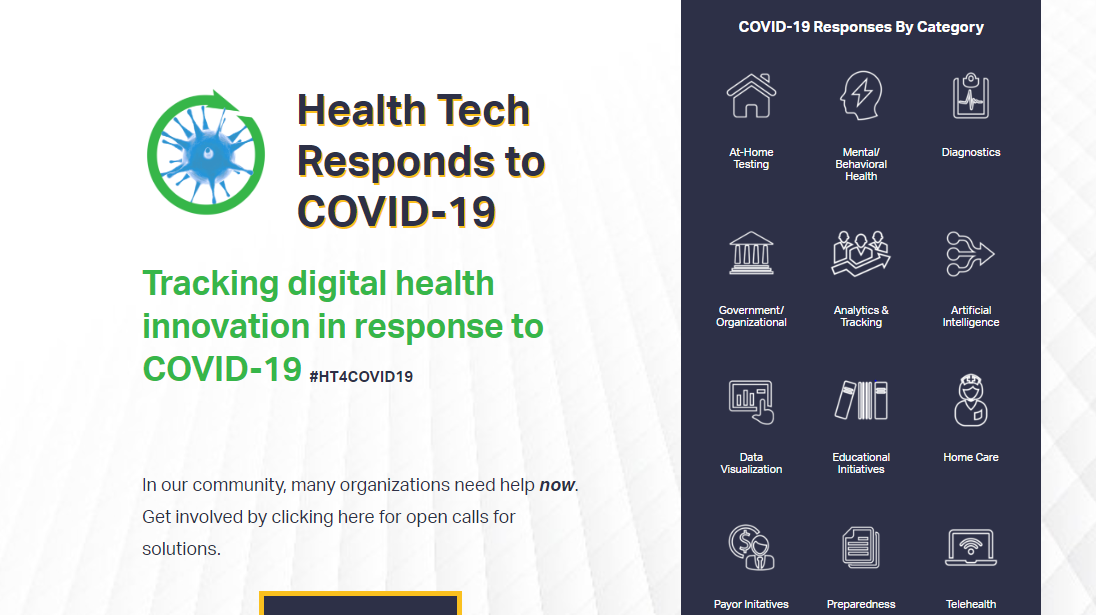Health Tech Responds to COVID-19
Catalyst @ Health 2.0 has created an inventory of information on 140+ innovators and their active efforts to support the response to COVID-19. Through this new initiative, Health Tech Responds to COVID-19, Catalyst is committed to informing the public with thoughtful, curated content on digital health innovations tackling COVID-19. The website also features interviews and blog posts that capture the expert insights from leaders in the health care, information technology, and digital health space.
If your company is working to respond to the COVID-19 outbreak, or you have expert insights regarding the pandemic, we want to hear from you! Respond HERE.
Apple Launches Screening and Resources Tool for COVID-19
Apple has announced the launch of a COVID-19 website and corresponding app. The tech giant is collaborating with the CDC, White House Coronavirus Task Force, and FEMA on the new screening and informational platform. Users are directed to next steps after answering questions designed to assess symptoms, risk, and exposure. Users can also tap into resources like Siri to ask questions regarding coronavirus symptoms, view resources from the CDC, and access directions to telehealth apps. As coronavirus cases top 700,000 worldwide, organizations like Apple are mobilizing to offer help at point-of-care.
FDA Gives Emergency Use Authorization (EUA) to Malaria Drugs for COVID-19
Despite current limited evidence to support their efficacy, the FDA has granted an emergency use authorization (EUA) for two oral formulations of closely related malaria drugs to treat COVID-19. The EUA includes restrictions regarding prescription requirements and the governing bodies in charge of issuing the drug supply. The agency issued the EUA to facilitate the drugs’ availability for patients for whom clinical trials are unavailable or for whom participation is not feasible.










